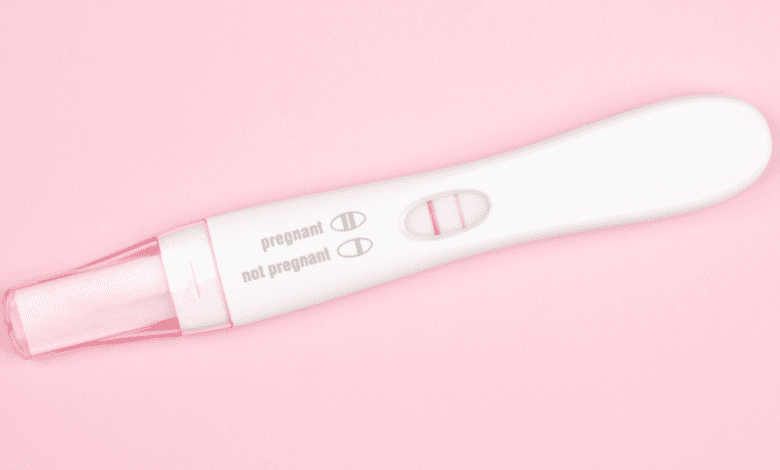Best Time of Day to Take a Pregnancy Test: Expert Advice

0
Determining the best time of day to take a pregnancy test and get the most accurate results is important for women anxious to know if they are expecting. Pregnancy tests work by detecting the presence of human chorionic gonadotropin (hCG), a hormone produced by the body during pregnancy. The level of hCG in a woman’s body increases as her pregnancy progresses, so it is important to take the test at the right time to get accurate results.
In general, the most appropriate time to take early pregnancy tests is first thing in the morning, when urine hCG levels are at their highest. This is because hCG levels tend to be more concentrated in the first urine of the day, increasing the likelihood of getting an accurate result. However, some home pregnancy tests are sensitive enough to detect hCG even if they are taken the next day. According to Cleveland Clinicit is advisable to wait at least three hours after the last urination before taking the test.
In addition to the time of day, it’s also a good idea to consider how long to wait after a missed period before taking a pregnancy test. Test reading accuracy increases as the expected period date approaches, so waiting until the day after the missed period may yield the most reliable results. As mentioned in Verywell Familytesting too early can lead to false negatives, causing unnecessary stress and frustration.
Best Time of Day to Take a Pregnancy Test
Taking the pregnancy test at the right time of day can greatly affect the accuracy of the pregnancy test results. The best time to take a pregnancy test is at morning when you wake up, before you drink any water or other drinks. This ensures that the urine pregnancy test is the most concentrated.
Using concentrated urine is important because pregnancy tests detect the presence of a hormone called human chorionic gonadotropin (hCG), which is produced by the developing placenta. Concentrated urine will have the highest levels of hCG, making it easier for testing to detect the hormone early in pregnancy.
There are different types of pregnancy tests available, though urine pregnancy tests are the most common. A urine test can be done at home, while a blood test must be done in a medical setting.
Home pregnancy tests vary in sensitivity, with some detecting hCG levels earlier than others. To ensure the best results, it is advised to wait until you are one day late from your period to take the test. Some pregnancy tests say it’s best results a week after conception, but it’s still recommended to wait until your missed period for maximum accuracy.
In summary, the best time of day to take a pregnancy test is in the morning, using your first pee of the day to ensure the most urine. This will increase the likelihood of getting accurate results. It is also recommended to wait for your missed period to take the test, as this will improve the reliability of the test.
Factors Affecting the Accuracy of Pregnancy Tests

Many variables can affect the accuracy of pregnancy tests, including the sensitivity of the test, hormone levels, and when it is taken. Understanding these factors can help ensure an accurate result when taking a home pregnancy test.
A major factor influencing the accuracy of a pregnancy test is its sensitivity. Pregnancy tests are designed to detect the presence of human chorionic gonadotropin (hCG), a hormone produced during pregnancy. The sensitivity of a test refers to the lowest amount of hCG it can detect. Some tests can detect lower levels of hCG, making them more sensitive and detect early signs of pregnancy.
Timing is another important factor in getting an accurate result. It is usually recommended to take a pregnancy test first thing in the morning when the urine is more concentrated. This increases the probability of detecting hCG if present. For women with regular menstrual cycles, home pregnancy tests can be used as early as first day after no period. Those with irregular cycles or who are unsure of their ovulation date should wait at least 14 days after intercourse before testing.
False negatives and false positives can affect the accuracy of pregnancy tests. A false-negative occurs when a pregnancy test shows a negative result, but the person is actually pregnant. This can happen if the test is taken too early, the test has low sensitivity or the hormone levels are not elevated enough to be detected. On the other hand, a false-positive result indicates pregnancy when it is not present. This is less common but can occur due to medications containing hCG, certain medical conditions, or a recent miscarriage.
In general, to increase the effectiveness of a home pregnancy test, users should:
- Choose a test with high sensitivity
- Try at the recommended time, based on menstrual cycle and time of day
- Understand the factors that can cause false-negative or false-positive results
By considering these factors, the chances of getting accurate results from a home pregnancy test can be maximized.
As always, follow up with your doctor to ensure the most accurate pregnancy results, start prenatal care, and regular appointments to take care of yourself and your baby.





